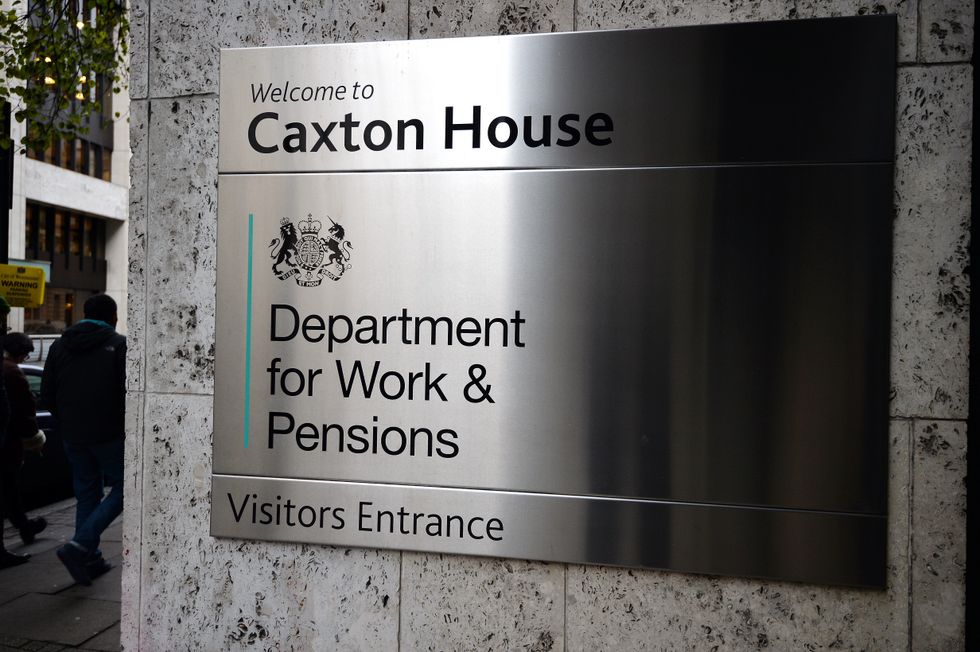State pension payments to rise next year
GETTY
State pensions rise every rise thanks to the triple lock with Britons' pensioners guaranteed to get an income boost in 2025
Don't Miss
Most Read
Trending on GB News
State pension payments could rise to £935 a week if the Government's triple lock remains in place next year, according to analysts.
This year, 12 million pensioners across Britain received an 8.5 per cent hike to their annual payments with experts pricing in a lesser increase in 2025.
Under the triple lock, payment increases go up either the rate of inflation in September, average earnings for May to July or 2.5 per cent; whichever is the highest.
In April, both the new and basic state pensions rose by 8.5 per cent, which saw the full new payment jump to £221.20, or £884.80 every four-week pay period.
In comparison, the full basic state pension increased to £169.50 each week, or £678 a month.
Britons are being warned that they will likely not be in receipt of a similar rate hike next year.
Do you have a money story you’d like to share? Get in touch by emailing money@gbnews.uk.

The triple lock guarantees state pension payments rise every year
GETTYAs it stands, the consumer price index (CPI) is sitting at a rate of two per cent with it being more likely than not that average earnings will be used to determine the increase.
Seven Cameron, the pensions director at Aegon, believes pensioners are in line for a 5.7 per cent rate hike next year.
He explained: "For the April 2024 increase, earnings growth in 2023 produced an inflation-busting 8.5 per cent increase.
"In April 2023, a spike in inflation the previous year led to a record-breaking 10.1 per cent boost to the state pension.
"These increases and the underlying high volatility that was present in both price inflation and earnings growth, have since raised serious questions over longer term affordability of the State Pension, which is paid for by today’s workers through National Insurance Contributions.
"With inflation having now fallen below the 2.5 per cent underpin, it’s likely to be earnings growth that determines next year’s triple lock increase, as the latest figures have this sitting at 5.7 per cent (for January to March 2024).
"The specific figure used for determining the triple lock will be the year-on-year increase in earnings for the period ending May to July 2024, which will be published in September. Barring a significant drop in earnings growth over the next few months, this figure will likely determine next year’s triple lock."
If this were to become a reality, the full new state pension would rise to £233.80 weekly or £935.20 a month, the equivalent of £12,157.60 a year. In comparison, the full basic state pension would become £178.40 each week, which would be around £713.60 monthly or £9,276.80 annually.
Becky O’Connor, the director of Public Affairs at PensionBee, noted that its Pension Confidence Index, which monitors how Britons feel about their retirement prospects, has risen following the General Election
She explained: "This surge in pension confidence in the immediate aftermath of the election of a new Government strongly suggests that political change impacts on how people feel about their long-term financial security.
LATEST DEVELOPMENTS:
 The state pension triple lock was temporarily suspended in the 2022/23 tax yearPA
The state pension triple lock was temporarily suspended in the 2022/23 tax yearPA"A decent pension has the capacity to reduce stress and make people generally feel more secure about their overall future. This is the first time since the quarterly index began that every age group has felt more positive than negative about their pensions.
"It’s fair to say that thinking about pensions traditionally is not always something that gives people joy, so this finding is noteworthy.
"We hope the Labour government can continue to inspire people to save more for their futures by pressing forward with key changes that can improve the nation’s retirement outcomes, through the new Pensions Bill."
The next state pension payment rate will come into effect from April 2024.








